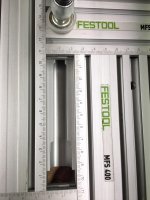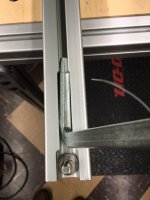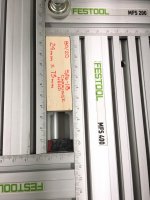rvieceli said:
Jeff, nope just a corded Dewalt trim router with a 1/4 inch solid carbide down cut spiral. It's on a plunge base and I use it to cut out for inlays, so it runs into and through a LOT of funky grain. Not surprising that it might loosen enough to allow the bit to slip over a long period of use without checking.
Ron
It's not likely with a down spiral bit. In the decades of router use I have done, literally the only bit I have ever had move was an up spiral 1/4". They have a tendency to pull down, much like a drill bit when breaking through the far side of the part.
[member=44099]Cheese[/member] that's the "they say" I was thinking of, but couldn't remember the name right off hand.
I was typing my first reply while half-watching the TV in the background, not fully concentrating enough to search it out. I have not gone as far as actually using the O-rings (they sell them) but I do always pull out on the bit, assuming it is long enough to bottom out. Many times, that is not even an issue because the flutes would enter the collet before reaching that far.
Cheese qoute: That sounds like a quote by the owner of a Model T who religiously hand started his car every day until it backfired once and it broke his arm...it just takes once to learn a lesson.
That is exactly why the president (at the time) of Cadillac commissioned the creation/invention of the electric starter. It happened to a lady he knew. It was either his wife or a neighbor's wife? I don't recall immediately.
But it follows some of the advice that I always give to new hires at the shop. "Learn the best practices and use them. Just because you have gotten away with something for a long time, does not guarantee future success." and "Bad practices become bad habits"



